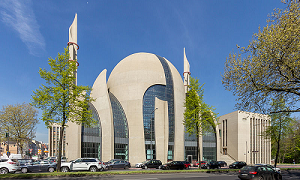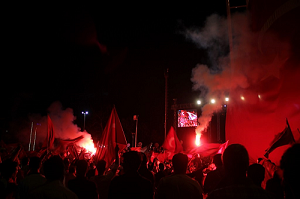“Weaponizing” the Diaspora: Erdoğan and the Turks in Europe
By Svante E. Cornell
April 5, 2017
Scandals have emerged all over Europe over the alleged illicit intelligence activity of organizations loyal to Turkish President Recep Tayyip Erdoğan. But the issue is considerably larger. The Turkish government has engaged in a systematic effort to mobilize the Turkish diaspora in Europe for the purposes of Erdoğan’s regime – as voters in Turkish elections, as a pressure group in the politics of their countries of residence, and as informants and bullies against Erdoğan’s opponents.

Ticking Clocks: Erdoğan and Turkey’s Constitutional Referendum
By Gareth H. Jenkins
March 31, 2017
Whatever the outcome, the Turkish constitutional referendum on April 16 will not resolve the country’s chronic domestic instability, heal its deepening social divisions, revive its flagging economy or end its growing international isolation. But it will shape both the nature of the further turbulence to come and the duration of what is already the final stage of the Erdoğan era.

The “Logic” of Turkey’s Repression
By Halil Karaveli
November 10, 2016,
What is the logic behind the arrests of Kurdish politicians and of liberal and leftist journalists in Turkey? From the perspective of the Turkish regime, in the wake of the coup attempt it is imperative to restore the authority of the state, and to undo the political gains of the Kurdish movement. President Recep Tayyip Erdoğan is seconded by the leader of the far right, Devlet Bahçeli. The new “Nationalist front” that their parties have formed speaks to the sensibilities of the vast majority of Turks. However, what is being mobilized is a destructive national unity, attained at the expense of liberty. Ultimately, it may not serve the cause of a united Turkey.
Erdoğan’s Dilemma: Preserving the Nationalist Alliance or Making Peace
By Nicholas Danforth
October 17, 2016
Turkey's July 15 coup attempt has transformed the country's politics, and notably it has deepened a dangerous pre-existing dilemma. President Recep Tayyip Erdoğan faces rival challenges from a Kurdish nationalist movement with a longstanding commitment to violence and a nationalistic Turkish electorate which opposes the concessions that will be necessary to make peace with the Kurds. This triangular tension means that Turkey will face a series of trade-offs, setting the country's embattled prospects for peace and democracy against one another.
A pattern of death: Turkey’s progressives are prey to the Leviathan
By Halil Karaveli
October 16th, 2015, The Turkey Analyst
Turkey’s democrats, leftists and minorities have always been prey to the sinister machinations of the multi-tentacle Leviathan that is in charge of the country. Arrayed against them have been authoritarian right wing governments, the military and the deep state. The Ankara massacre is a reminder of who the victimized “others” in Turkey really are. It is also a reminder that the course of modern Turkish history has more than anything else been shaped by a sustained effort to stamp out any kind of challenge from the left. The deep reservoir of popular, ultraconservative, ultranationalist resentment has continued to yield politically instrumental mass murderers. It has ensured that fascism – whether in Kemalist or Islamic disguise – has always prevailed in Turkey.







